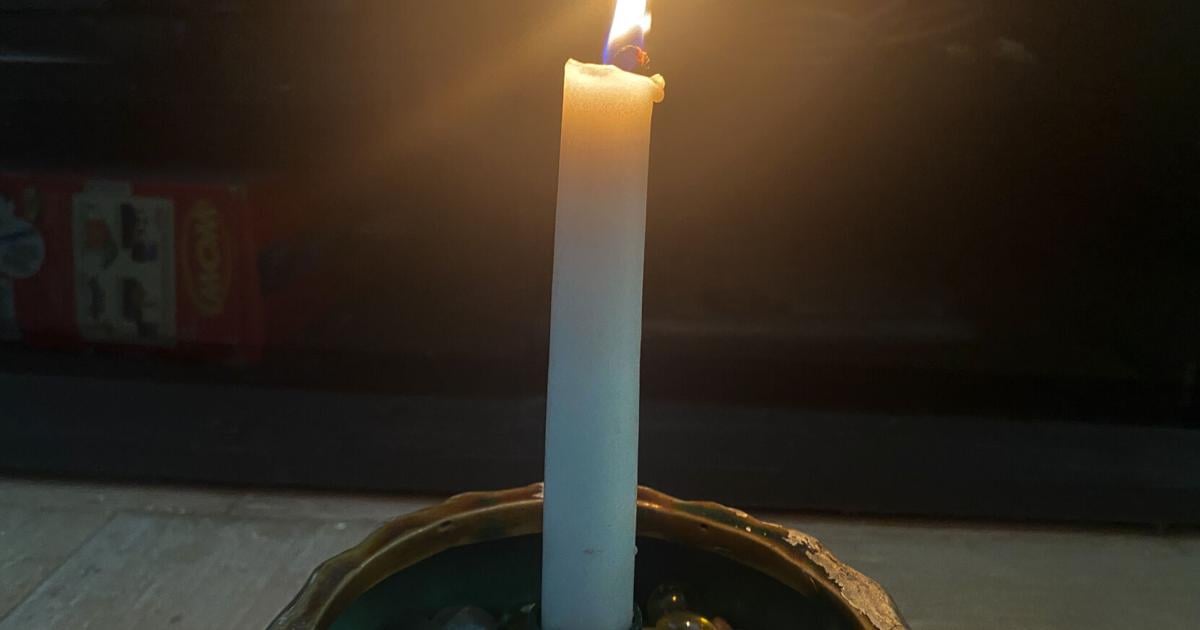
As the weather chills, I’ve been using the time to reflect on how my last year at Cal State Fullerton is marked by the end of a lot of things: a death in the family, a first heartbreak and an early graduation.
I didn’t fully grasp the concept of grief until I unexpectedly lost my father and experienced heartache after breaking up with my first love while preparing to enter the workforce.
I was not prepared for it. But, for anyone who may be anxious about loss or has lost someone already, here are a few of the lessons I’ve learned.
-
Know how to regulate your emotions
Unexpected grief is emotionally painful, but I was not aware of the physical symptoms that accompanied its emotional toll. I remember being unable to eat or sleep regularly and having frequent stomach and chest pains.
While unpleasant, it prompted me to work on processing and regulating my emotions. The Cornell Research Program on Self-Injury and Recovery defined emotional regulation as “a person’s ability to effectively manage and respond to an emotional experience.”
As I processed my grief, I prioritized my physical health and scheduled an appointment with a therapist. Some people may avoid grief, but that can have severe negative health effects. Avoidance can complicate the grieving process, resulting in depression and health problems, like a weakened immune system, inflammation and fatigue.
Taking the time to learn how to identify your emotions and regulate them will help in the long run. A 2022 study found that emotion regulation and loss-related coping self-efficacy helped improve treatments for grief. If you need some healthy coping strategies, some of the ways to cope include taking breaks, journaling, therapy and taking care of yourself when you feel sick.
-
Find a support group of people who have experienced the same kind of grief
After I lost my dad, listening to people around me talk about their families came with instant heartache. Yet, nothing helped the healing process more than remembering him with people who knew what it was like to lose a parent.
We shared memories of home-cooked meals, jokes from our deceased parents and our fears of not being able to remember their voices. They prepared me for the long-standing battle with grief; it may always feel like a rock embedded in my heart, but time will erode its sharp edges, they said.
Peer support is necessary when someone is grieving. According to a 2019 study about the effectiveness of peer mentor programs for grief, care from peer mentors or volunteers who have experienced grief and loss has been integral in the grieving process. Through nonjudgmental listening, empathy and sharing similar experiences, they help validate those affected and help them find hope for the future.
Reaching out to people who have experienced the same thing gave me an idea of how to cope. If you need a place to start, Counseling and Psychological Services at CSUF offers a drop-in grief support group on Tuesdays from 10 a.m. to 11:30 a.m.
-
Don’t compare your process/progress to someone else’s
When my ex and I broke up, we knew it, but social media algorithms didn’t.
While I was in the middle of my no-contact phase, I would see many people’s posts talking about reaching out to old partners in healthy ways or of people considering contacting their exes again. That was not what I needed to hear.
A 2019 study from the University of Colorado in Boulder asserted that social media algorithms can worsen the healing process by swiping up reminders of your ex. In my case, it made me compare myself to other people online who were supposedly going through similar situations.
Although it’s important to note that we cannot block out every reminder of a past relationship, blocking specific creators and not interacting with posts that pick at old wounds can help with moving on.
Though this list isn’t exhaustive these are some things I wish I’d known about the process. The hardest lesson to learn was that it will get better and life after loss won’t always feel painful.
If anyone out there is experiencing their first griefs, I hope you see it get better soon, too.
